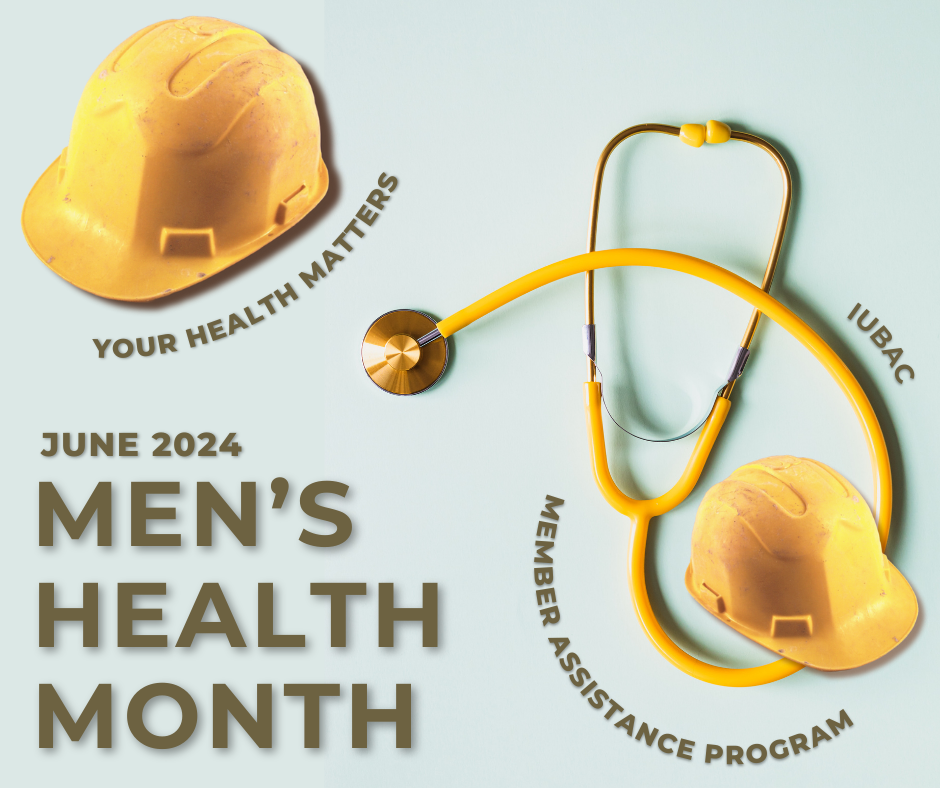Members
June 2024: Men's Mental Health Month

June 2024: Men's Health Month
Worker wellbeing is greatly impacted by one's health status. With over 90% of construction workers being male and given that many construction-related health issues can be addressed with education and safer practices; BAC MAP joins the U.S. and Canada in recognizing and promoting International Men's Health Month.
Relevant Facts and Figures:
- Several health risk behaviors are more prevalent among construction workers than other professions (including smoking, smokeless tobacco use, binge drinking, low leisure-time physical activity, and inconsistent seatbelt use).
- More than half of men do not get regular health screenings or engage in preventive care.
- Men are more likely than women to drink excessively, and to have higher rates of alcohol related hospitalizations.
- Men are more likely than women to use illicit drugs, and to have higher rates of illicit drug related hospitalizations and overdose deaths.
- Men are almost four times more likely to die by suicide than women.
- Men experiencing mental illness are less likely to have received mental health treatment than women experiencing mental illness.
- Nearly 1 in 10 men experience some form of depression or anxiety, but less than half seek treatment.
- Men have higher mortality and morbidity rates of coronary heart disease, hypertension, diabetes, and cancer.
- Loneliness - a risk factor of heart disease, stroke, type 2 diabetes, depression and anxiety, addiction, suicidality, and self-harm - appears to be more common in men than women.
What to Do Now:
- Address stigma and treatment avoidance (studies show that underutilization of health care services by males, including mental health and substance use treatment, may be related to norms around perceptions of masculinity).
- Recognize signs and symptoms by getting screened (for physical health, mental health, and substance use conditions). Some of the leading causes of death and chronic health issues amongst males (smoking, alcohol consumption, sedentary lifestyles, and hypertension) have common risk factors, therefore screening and early intervention can be lifesaving.
- Choose a primary care doctor if you do not already have one.
- Engage in preventive care by getting regular check-ups.
- Manage chronic pain with a medical professional. Discuss non-opioid pain management alternatives to treat muskuloskeletal disorders with your doctor.
- Know that help is available. Call MAP (1-833-MAP-TALK) for mental health and substance use related matters, as well as guidance on locating a medical professional to address health issues.
For additional information and resources, please visit the following links:
- Men's Health Month (Mental Health America)
- Man Therapy
- Men's Health Month (HHS)
- Men's Health Check (Canada)
- Men's Health (CDC)
- Men's Mental Health (ADAA)
If you or someone you know is experiencing a life-threatening emergency, please call 911. You may also obtain immediate 24/7 help from the Suicide and Crisis Lifeline by calling 988.
